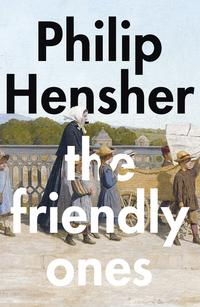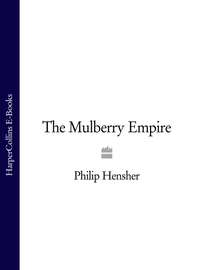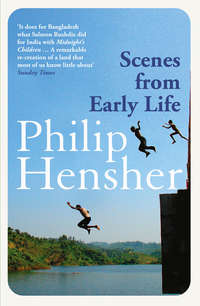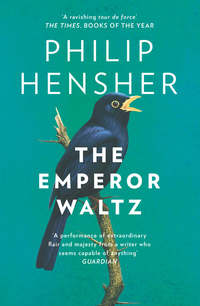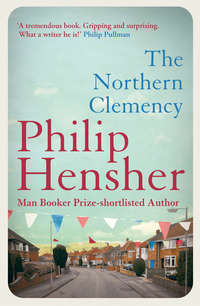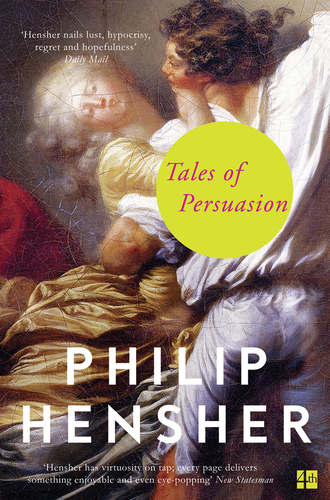
Полная версия
Tales of Persuasion
George had a pass to the building – his building, he must start to think. It was in his pocket. He felt it now, as he walked. He knew exactly where he was to go, on this first morning. Mr Castry – Bill, he was supposed to call him – had taken him round and introduced him to people the Thursday before. He had not remembered very much, but Bill had made sure that he knew exactly where to go the following Wednesday. Everything else can come after that, he had said. George had got up at the weekend and walked all the way from the flat in Bloomsbury he was sharing with the Brazilian girl and the American girl. It was a rehearsal of his first day. The streets had been empty at half past eight on a Sunday morning, apart from some tourists and people who might have been hurrying to a Sunday service, here and there. George had walked down to Trafalgar Square, down Whitehall, to the outside of the building where he was going to work. He wanted to make sure that it was still there, where he remembered it was. Nobody was there to see him, and he had walked away quickly, not pausing, his trainers making no sound on the pavement. He might have been walking past purely by chance.
The office where he had worked for the last eight months was a cheerful and undemanding place. A temporary place. It accepted applications from overseas students to study the English language, and it assigned them to the appropriate class. Julie was in charge. She had been there for donkey’s years, she said. Her husband was something in business. Something to do with bacon or coffee, but he was in the City; he never saw any bacon or coffee unless it was in the snackbar by the tube. For most of his day, bacon and coffee were just figures on a screen, Julie explained. Great mountains of notional bacon and coffee. She didn’t know how he could stand it, all day long. There was a sense of fun in the office. They had opened the letters, had filled in the forms that were needed and, twice a week, had gone to the communal meeting room where the biggest empty table was, and arranged the applications from the past few days in order of classes. Probably Julie could have done this on her own, but she liked to get everyone involved. Sometimes a student came to demand his money back or to complain, because he had not succeeded in learning enough English. Those, too, were occasions of fun, once the complaining student had been refused and pacified and sent on his way. Julie had a way of rolling her eyes and holding her hands up to heaven that everyone copied. That office had been only until Christmas, and George had understood that from the start. The office he was going into would be for his entire life, from today onwards. He curbed his spirit of fun. The door to his building was open.
‘Good morning,’ he said to the man in uniform sitting behind the desk. A walk-in cupboard behind him was piled high with documents, tagged and ordered. George pulled out his plastic pass from his pocket and showed it carefully, the right side up so that the guard could inspect it.
The guard looked at it briefly, then at George, more curiously. ‘Morning,’ he said. Of course George should have been more casual about it. He felt like a criminal who, gaining access to a guarded building, had made himself stand out in some way. ‘Starting to snow,’ the guard said. His tone was not friendly, but it made George feel that he was accepted, grudgingly, within the building; it explained, too, something about the day that he had not understood. The metallic sensation of weight and chill obscurity in the air was not, as it had seemed, official London welcoming George to his new life. It was what had happened many times before without reference to the lives of any men or women: it was the sensation of snow about to happen. But George did not have to answer: a woman came out from the cupboard.
‘Is it now,’ she said, only glancing at George.
‘It won’t settle,’ the guard said. George was pleased he had not misunderstood and tried to start a conversation. The office he was to work in was on the third floor. There was no need to ask anyone’s advice about how to get there. One day, quite soon, he would know the names of both these people, and greet them with kindly deference.
He took the lift, and in a moment there he was in the corridor where the committee’s offices were. There were four doors, and there were labels on three of them, giving people’s names or their job titles. The fourth stood slightly open, a strip-light on. From inside he could hear a woman’s voice, slightly muttering, and the sound of heavy documents being moved from one pile to another.
Before he could knock, the noise halted, and the door was opened wide. A woman with white hair in a bob, a sharp nose and bulbous eyes was there; she was wearing a coat and a scarf, and underneath a skirt in a large floral pattern, which seemed to be too long for her. ‘Oh,’ she said. ‘Oh, I say.’ Her voice was light and metallic, grating. She was assessing him, not in an unfriendly way but without a welcoming smile. ‘I know who you are. You’re our baby Clerk, aren’t you? It’s George, isn’t it? I was saying to Pam, only this morning – trust the powers that be to send us a baby Clerk to nanny through, just when all this is kicking off. Patrick’s not going to be one bit pleased. He’ll be tearing his hair out.’
There was a sharp ring from inside the office. The woman turned and went inside, picking up the telephone. ‘Energy Committee, Andrea speaking – oh, hello!’ Her voice went from stern to girlish; she giggled. ‘No, Patrick, don’t you be – I’ll tell you something, there’s a lovely surprise for you when you get in, a lovely surprise waiting, your favourite thing … Oh. Who told you? … Well, no one tells me anything … Oh, about the usual, I would say. I expect you’re phoning to say you’re late in, as ever. Well, let me tell you …’
George walked away, feeling he should not listen to this flirtatious conversation. The walls were hung with mezzotints; eighteenth-century politicians and bishops on the shiny magnolia walls. Another door stood open to an empty office: its windows were hung with dirty grey net curtains, too long for the space and falling to a pile on the windowsill.
‘That was Patrick,’ the woman said, coming out of the office with a dark blue document clutched to her bosom. ‘What are you doing down there? Come back and sit down with your aunty Andrea. She’ll tell you what’s what. You’ll never guess. Patrick’s calling from the phone box at the top of Whitehall. He says— Well, did you hear that bang?’
‘No,’ George said. ‘What bang was that?’
‘That bang!’ Andrea said. ‘Half an hour ago, that bang. I wondered what it was so I went down and asked the front desk, they didn’t know any more than I did. What bang, he says. It made me jump, I can tell you.’
There was a pause. Andrea was inspecting him in close detail, standing with her legs apart.
‘Well, we can’t have you standing in the corridor all day,’ she said. ‘I expect I’d better show you where your office is, and you can make yourself at home. It’ll be funny not having Mike in there. Ah, well.’ She sighed theatrically. ‘Now, these are my keys. I’ve got a set for everyone’s office. Don’t waste your time asking me if you can borrow them when you forget yours – ooh, Andrea, pretty please, it’ll only be this once, I’ve never forgotten them before. I’ve got a good reply to that sort of thing. No. Way. Sunshine. Because there’s no way I let them, my keys, I mean, out of my possession. So you’ve just got to hang on to yours. Welsh, are you?’
George’s office was quite bare: there was a desk facing the door, an empty bookcase, and nothing more but a desk tidy, and a pair of plastic trays, one labelled IN and the other labelled OUT. There was a pile of papers in the in-tray. There was a large, grubby white telephone on the desk, and a spiral-bound notebook with a chewed biro alongside. Everything was generic, except one thing: a miniature object, a range of five furled flags the size of a stretched hand. There had been a previous inhabitant of this office, who now had moved out and left this. At some point George was going to meet that previous inhabitant; at some point he, too, was going to leave some individual sign of his life for a new boy, a new girl, to wonder about. In two years’ time, perhaps.
Andrea had gone back to her office, closing the door, without waiting for a response to her question. A red light on the telephone showed that she had started a call. George hung his coat on the back of the door, and put his empty briefcase down by the side of the desk. His father’s professional life must have started exactly like this, thirty-five years ago. He had arrived in the office where he would spend the rest of his working life, moving from job to job, but always remaining loyal to the organization. George’s life had led up to this moment, and he would never be unemployed or unattached again. The years at university, trying to get an essay exactly right, trying to fish a piece of overlooked information from the seas of the Bodleian had led up to this moment, with an empty desk and a tray full of stern, detailed information.
He had taken two days off from the language school in October to undertake the application process. He had filled in forms, and drafted polite letters to imaginary supplicants who were attempting to defraud the public purse; he had entered into discussion with other applicants and with the examiners; and he had been interviewed. The rooms in which the process had taken place were bright-lit and yellowish. Each of them had windows, which, like this one, were veiled by net curtains too long for the space. A middle-aged woman with a mop of ginger hair and an amber brooch on a green sweater had introduced herself as the psychologist on the team. She had asked him penetrating and quite personal questions until one question – George could not recall what the question had been – had made him reply that he didn’t believe the answer was any of her business. The interview had come to an end promptly after that. At the time, George had wondered whether he had scuppered his chances by being rude. Afterwards, when the offer of a job came, it seemed to him that he had been firm and impressive in drawing a line. So he was in his office, not yet with his name on the door, preparing to start work.
Elsewhere in the city, Londoners were setting to work, exchanging insults and flirtatious suggestions with their colleagues, having a cup of coffee, getting down to their most ordinary business. To kick your shoes off under your desk, to hang your jacket up and straighten the photograph of your family in front of you. They would be taking it all for granted. They did not know how magical it was to have a job; only George, on his first day, knew that. In a moment, it occurred to him that he was being paid for what he was doing, even now. The thought made him dizzy.
He had been in only two or three rooms in the public service, and before, he had thought that the net curtains hanging over the windows were a matter of personal idiosyncrasy by the inhabitants or users of the rooms. Now he understood that it must have been a decision made by some central authority. He got up and examined the net curtains. They did not hang loose, but fell to a gathering pile on the windowsill. The hems of the net curtains held small lead weights, to hold the curtain down in any breeze. He picked them up; felt them in his hand. The window did not have any kind of view. It gave onto a well between buildings, and faced a high wall with yellow and brown glazed brick, broken by a single brightly lit window. It appeared to be a window on a stair or a communal space. Snow was falling thickly through the artificial light.
‘You’ll be wanting to get on with that,’ Andrea said, leaning against the doorpost. She held a blue printed report, the size of A4. ‘The dreaded in-tray. There’s always more to be getting on with. One word of warning – Patrick’s quite nice but he’s a devil for punctuality. He doesn’t like it if there’s something sitting in your in-tray that he’s waiting for and he’s still waiting for it tomorrow or, God forbid, the day after. Another word of warning – if Patrick starts gently suggesting that perhaps we could make a start on work before ten, start coming in by nine thirty or nine, just agree and come in at ten anyway. He’s hopeless about all of that, coming in early – he’s not another Chris Leonard, if you know who that was, which you don’t, I don’t suppose. Don’t be taken in by that demeanour, he’s very strict about most things. I had an aunt who was Welsh, not blood, of course, she was my uncle Edward’s second wife. Ooh, she was a bully. She sent him out to fetch her little things, all her errands, in all weathers right to the end of his life and her twenty years younger than him. He was an old fool, we always used to say, my mum whose brother she was. I don’t know why, but I’ve never managed to fancy the Welsh since then, all because of my uncle’s second wife, Phyl. Strange, isn’t it? And speak of the devil!’
In the corridor, behind Andrea, was a thin man with grey hair flopping over a drained white face, both middle-aged and boyish; he grinned forcefully, brushing the snow from his shoulders. ‘What a day,’ he said. ‘What a day. So you must be George! Welcome, welcome, welcome. I should have been here to welcome you. But Andrea was here, I’m sure. How are you, my sweet?’
‘Don’t think you can get around me as easily as all that,’ Andrea said.
‘There’s the most extraordinary thing,’ Patrick said – he must be Patrick. ‘Out there, the whole of Whitehall’s been closed off. Did you see? There’s been some kind of mortar attack on 10 Downing Street. I’m amazed you got through. A very, very good start, George! You succeeded in getting through the mass of police cordons and security walls. Most people would have given up and gone home and started work tomorrow. But not George! A big gold star on your first day, George. I really doubted I was going to make it. Did you not hear anything going off?’
‘You see?’ Andrea said. She tapped a red-painted fingernail sharply on the back of the report she was clutching. ‘I said there was a bomb going off, didn’t I? Didn’t you hear it? I’m the only one who heard anything, but, oh, no, Andrea, you must have been hearing things. But there you are.’
‘I was at the far end of Whitehall,’ Patrick said. ‘And there was a police cordon going up, and I phoned you then from the phone box. Then I asked the policeman in charge what was happening. He wouldn’t let me through at first. I knew he wouldn’t. But then all of a sudden there was the Clerk of the House. I can’t think what he was doing at the far end of Whitehall at a quarter to ten, but he just sort of glowered at them and told them who he was, and they let him through and me as well.’
‘Well, there you are, then,’ Andrea said. ‘A mortar attack on 10 Downing Street. I do hope that nice Mr Major is quite all right.’ She stood for a moment inspecting George, her mouth slightly open, an expression of amusement in her eyes. As if with a snap of command, she turned and left, shutting what must be the door of her office with a bright slam.
‘She’s a good soul,’ Patrick said. He thrust an index finger in his ear and waggled it furiously, extracting it with a pop. ‘You’ll find that she has her own ways of dealing with things, and they all work out in the end. Just don’t try to suggest any changes, and everything will be absolutely fine. Well. Welcome! I’m not at all sure what we should be doing today. I need to make two or three phone calls, and then we can sit down and talk and I can explain things, about where the committee has got to and what you ought to be doing and so on. I won’t be too long. One thing …’
Patrick came into the office, and noiselessly pushed the door to. ‘If I could recommend something – if I were you, I would always find that I had something important to do at the close of business on a Friday. Andrea’s a very good soul, but it’s as well not to be drawn into her Friday afternoons and evenings. Just a word to the wise.’
‘What are you saying?’ Andrea’s voice shouted from her office.
‘Nothing! Nothing at all, my sweet!’ Patrick called. ‘I was just welcoming George to the office. It occurs to me –’ his voice dropped to normal volume ‘– that the one thing that is supposed to happen this morning is John Slaughter, the bod from UCL, he was supposed to come in and brief us. About wave energy. I don’t know anything about wave energy and I don’t suppose you do either. He was meant to come in at eleven thirty but I don’t know if that’s going to happen. If you wanted, you could try to find out whether they’re letting anyone through. He hasn’t phoned, as far as I know. Andrea,’ he called again. ‘Has John Slaughter called? Well, no, then.’
Patrick left. George knew that the time had come to demonstrate initiative and efficiency. He picked up the biro, and wrote ‘John Slaughter?’ in the spiral-bound notebook. He thought the best way to discover the state of affairs was to go downstairs and ask the security staff. He left the office, leaving the door open, and walked to the stairs. At the bottom, the woman security officer was at the desk on her own. He noticed she had a large hairy mole on her left cheek. He wondered if the time would come when he knew her name, and could recognize her. There was no need to ask her anything. Her voice called out behind him: ‘There’s been a mortar attack on 10 Downing Street. Everything’s sealed off.’ He nodded at her, and left the building, checking that he still had his pass in his pocket. The side-street outside was deserted; the snow was falling heavily, and had now settled. The junction with Whitehall was sealed off with police incident tape. George walked up to it. It must have been sealed off since Patrick had made it through. The whole of Whitehall, to left and right, was deserted behind incident tape. The snow fell on untouched ground, and was now a pristine three inches deep.
Once, George had been out in the country after a heavy snowfall, and had seen a woman playing a trick on her dog. A wound-up, bounding, overwhelmed dog, a Jack Russell. The woman bent down, and took a fistful of snow, rolling it into a snowball, and threw it. The dog hurtled forward to find the thrown thing to fetch, but where the snowball fell into the snow, there was only snow, and nothing to bring back. The dog ran around, astonished, baffled, and returned. The woman bent, rolled, threw again. The dog fell for it again. She had been doing it for some time. The field of snow contained something to fetch, and the dog had run into it, again and again. Now, beyond the Cenotaph, two policemen stood in their dark uniforms, like picturesque figures in a snow scene. There was no possibility that anyone would reach them until the road block was lifted. George stood there. The boulevard was transformed. Nobody else was there, looking at it. There was a perfume in the air that was the absence of perfume: London stripped of its odours and made to smell of snow falling through oxygen. Nobody else would ever see the sight of Whitehall as blank and clean and silent as a remote moor in deep winter, unpressed by the tread of foot. The sight was as unique as his first day at the work he was going to make a success of.
He was able to tell Patrick that he thought there was no possibility of receiving any visitors until the cordon was lifted, and he did not know when that might be. Patrick cursed amiably, and went away, promising that he would sit down and explain everything about the committee and its work later that morning. George sat down and reached for his in-tray. He opened the first document. It was the annual report of an organization that seemed to be something to do with nuclear energy. George began to read it. He understood almost nothing of what he read, and soon a feeling of mild satisfaction came over him at the image of dedication he must be presenting, if anyone walked past his office and happened to glance in. In time, he shut the document and placed it in the out-tray. It occurred to him to make a note of what he had read, and he did so, in the spiral-bound notebook. He picked up the second document in the pile, and soon he looked like someone who was making efficient work out of his inconveniently interrupted day. He passed papers from one pile to another, with the appearance of someone who was working hard, and beginning a new life. Anyone could see he had the capacity to be useful, and the thought gave George, head down, something rather like joy.
My Dog Ian
‘No, I don’t speak the lingo at all,’ she would say. ‘Just bono giorno, honey, bono sera, that’s all it takes. What’s the point? They rob you anyway, rob you blind. Take Paolo …’
Those Florentine afternoons. And afterwards I was always the same. Some people are always on stage. Most are destined always to be in the audience. Realizing it, you can never change the fact afterwards. After Florence, I would always be in row F of the stalls, hands clasped, looking up as the lights pointed in a different direction, allowing myself to be persuaded.
I went to Italy because of love – no, guilt. I was twenty-seven. I had been working ‘in the arts’ for five years. It was the sort of job that had sounded immensely desirable once. ‘Arts administration,’ I had confidently said to careers advisers, friends of my parents at drinks at Christmas. It had sounded good, labour rooted in passion and exchanged, at the end of the month, for money you couldn’t be ashamed of earning. My contemporaries failed, and had to settle for jobs as solicitors. Five years later, they earned three times what I did and were beginning to drop me. They could not be blamed. ‘Arts administration’ meant a narrow office in a Victorian museum in the north, kept going with public money and the promise of lottery largesse. I found, after all, that you could be ashamed of the money at the end of the month. It was so little. My grey walls teetered with box files; outside, you walked between the museum’s doubtful Raffaelino and the still more doubtful school parties. I grew to detest the single Matthew Smith, lurid as the municipal flowerbeds, to hate, too, the multiple aldermen in committees, drab and important in appearance as the museum’s solitary Stanley Spencer. Last Supper in Maidenhead. You may know it from reproductions.
It was a city of three hundred thousand people but, still, it hardly seems surprising that I noticed Silvia. In that city, she was like a panther at a Tupperware party. The society was less extensive than you might imagine. A small Italian woman, with expensive accoutrements and an expensive, contemptuous way of standing with her hips jutting forward, made herself conspicuous. I had formed the habit of going to concerts in the university hall every other Friday. The tickets were cheap, and the platform just about big enough for an orchestra. The timpanist had to sit beneath the conductor’s podium, however, and guess at the beat. More usually, as tonight, it was a string quartet. In the interval, the audience sat in their seats or clustered in the chilly atrium drinking coffee. It was not a well-dressed audience. You noticed Silvia.
‘Have you seen,’ my colleague Margaret said. ‘A footballer’s wife?’
(It was a recognized social category, in that impoverished northern town with two famous football clubs. It was used for any woman under thirty with a tan and a handbag.)
‘I hope she enjoyed the Webern,’ Margaret said bitchily. I went to concerts with Margaret. It was no more than that.
‘I hope so too,’ I said.
After the interval, I took more notice of Silvia. She was sitting three or four rows in front of us, on the other side of the aisle. She listened intently to the first two movements of the next piece. Then, with a sigh, just as the string quartet was raising its bows, she got up and left, clacking down the central aisle. The string quartet lowered its bows, waited for her to leave. They began to play again.
‘A bit much for the Footballer’s Wife,’ Margaret said archly, when it was all over. ‘The bitonal passage can be a little demanding for many music lovers.’ I wasn’t sure, and not just because I didn’t know what Margaret meant. To me those decisive stilettos clacking towards the exit looked much more like someone who only wanted to hear the scherzo of the Ravel string quartet; had come for that, had left when it was done.


